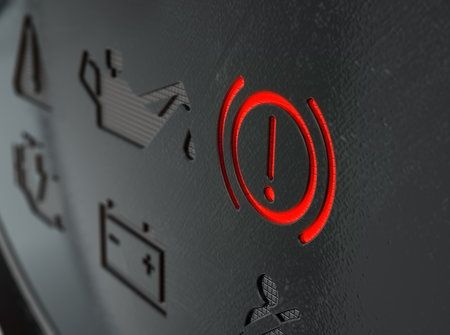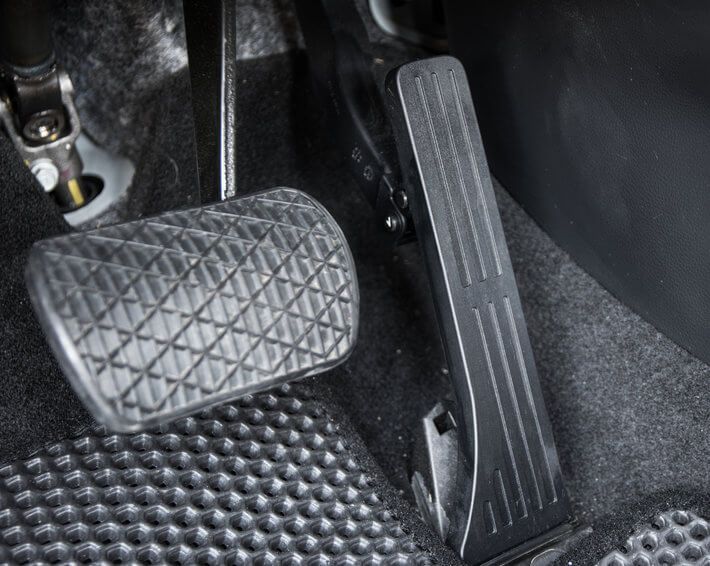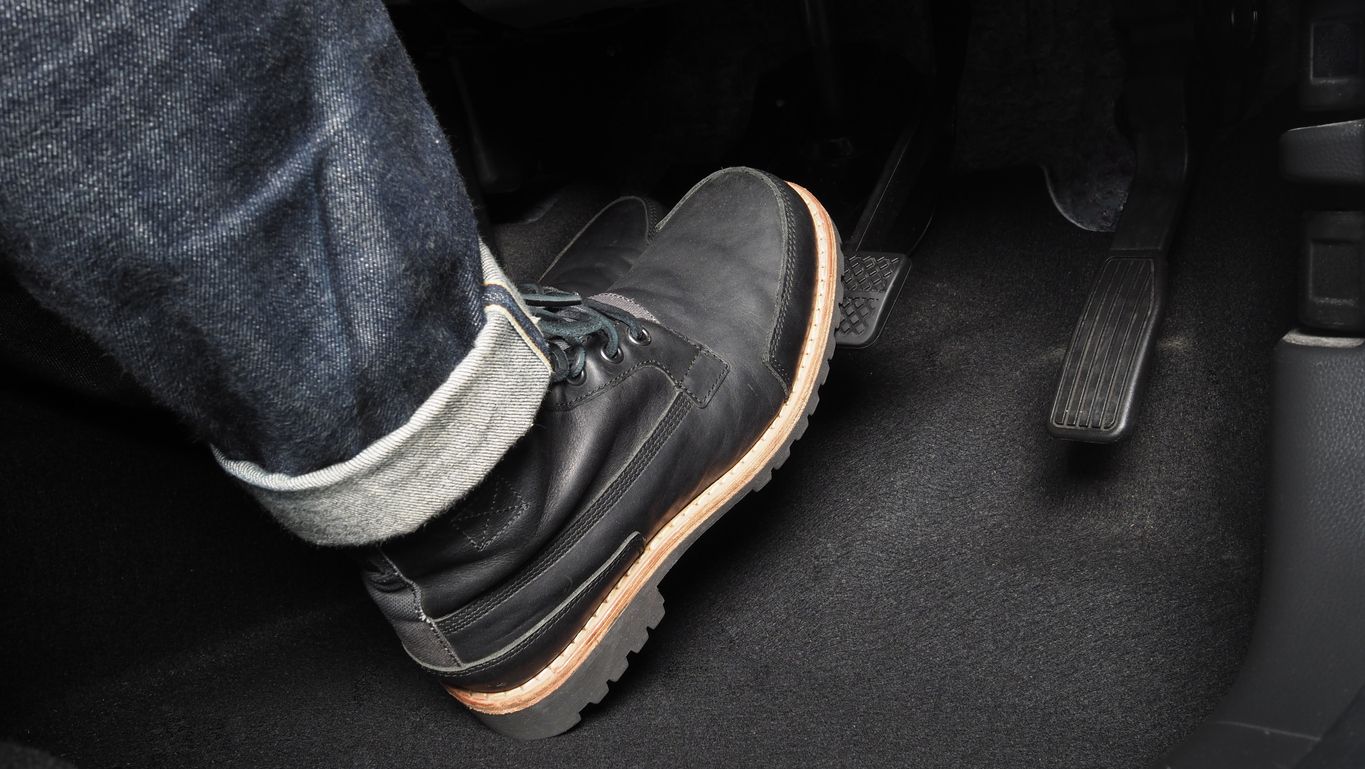It can be annoying when things like seat warmers or satellite radio don't work just perfectly. If your brakes aren’t functioning properly, though, it can be downright dangerous. Brake problems can turn a slippery situation into something much worse. Learn about the most common brake problems and why they should have you pointed in our direction for a brake service – right away!
Your brake light is on.

You hear strange noises when you brake.
If you hear obnoxious or odd noises as you press the brake pedal, your car is screaming for attention. Literally! Things like worn brake pads and brake rotor rust can cause a shrill, squeaking noise when you apply the brake. A grinding noise can be caused by metal hitting metal, meaning your brake pads are worn through. Don’t ignore weird noises – your brakes are asking for help! This fix could be as easy as installing a new set of brake pads.
Your steering wheel shakes or vibrates as you brake.
If you notice the steering wheel shaking in your hands as you brake, there's likely a problem with the rotors. Your brake pads press down tightly on the rotors to bring your vehicle to a stop, and clamping down on rotors that are uneven or warped will create a shaking or vibrating sensation. Ignoring this issue can lead to additional damage, so don’t wait to see a technician. Depending on the level of wear, your rotors might be able to be quickly resurfaced.
Your car pulls to one side when you brake.
If your car veers to one side when you press the brake, something is off balance in the braking system. There are a few usual culprits, like stuck calipers, collapsed brake hoses, and worn-out rotors. The pull can also be caused by an issue with suspension parts. An experienced technician can diagnose the problem and get your car back on the straight and narrow.
You notice a difference in the resistance of the brake pedal.
As a driver, you become familiar with the feel of your vehicle’s pedals. If you notice that your brake pedal feels different, it’s a red flag. Things like air in the brake lines, low brake fluid, or damage to various parts of your braking system can cause your brakes to feel “soft,” requiring more time and distance to get your vehicle to a full stop. Trust your gut (or your foot) and take your car in for a safety inspection if you notice a change in your brake’s resistance.
You notice odd smells when you apply the brake.
Your eyes and ears aren’t the only brake problem diagnostic tools! If you notice an unpleasant burning or chemical smell when you press on the brake, pull over ASAP. Your brakes may be overheating, which could result in complete brake failure if ignored. Double check that your parking brake is off and let your brakes cool down. If you continue to notice a smell or see smoke, bring your car in for an inspection. Smelly brakes are a warning sign your brakes need service.
You rely on your brakes each and every day. Don't overlook red flags, especially during one of the toughest seasons on the road. Stop by your local Tires Plus for a free brake inspection and service, if needed. We'll make sure that you can drive with confidence knowing that since we did our job, your brakes can keep doing theirs.



